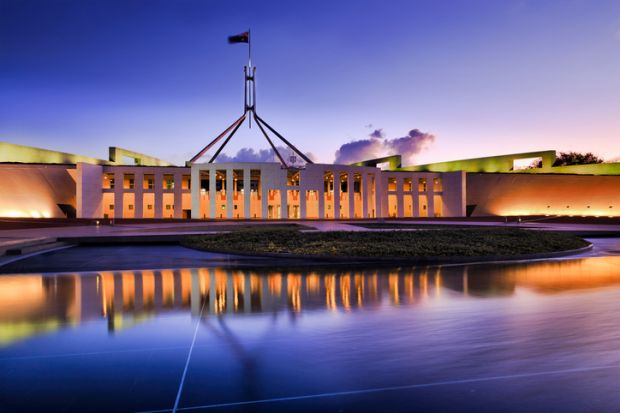Australia’s opposition has made tertiary education policy an election issue by promising 20,000 additional university places as part of its A$1.2 billion (£636 million) “A Future Made in Australia” plan.
The new places will “help fix areas of skills shortages” by training Australians in areas including engineering, nursing, technology and teaching, Labor Party leaders said.
Places will be prioritised at universities offering more opportunities for under-represented groups such as indigenous Australians, people located outside city centres and first-in-family students.
Labor leader Anthony Albanese promised to revive a university sector “that this government has wilfully and wantonly smashed”.
The plan focuses mainly on bankrolling more places and facilities at technical and further education institutions (TAFEs), the country’s public training colleges. But higher education groups welcomed the pledge of extra university places.
“We believe that there is unfinished business in equity and participation and we welcome the prioritisation of under-represented groups,” said Innovative Research Universities executive director Paul Harris.
Universities Australia said that the new places must be securely funded. “We’ve got a whole tranche of new students coming on board,” executive director Catriona Jackson told the ABC. “Political parties of any stripe should see universities [as] a fundamental part of our economy. This should be a bipartisan commitment.”
But acting education minister Stuart Robert scoffed at the policy. “Labor’s got to explain…why it’s not fully funding university courses,” he told the ABC. “They’ve got hundreds of millions of dollars for two years of university degrees, but most of them go for three years.”
Australian National University higher education expert Andrew Norton said there was “no obvious downside” in Labor’s proposal. But writing in The Conversation, he said that the plan was conceptually similar to the government’s “flawed” Job-ready Graduates reforms.
“The key difference between the parties is the amount of extra funding for the chosen universities rather than the underlying criteria for how it is distributed,” he said. “Demand-driven funding, as Labor promised in 2019, is the most effective funding policy response to the problems it sees.”
Professor Norton said Labor’s withdrawal of support for demand-driven funding reflected the pandemic’s effects on federal government coffers, coupled with a looming bulge in school leaver numbers.
“The so-called ‘Costello baby boom’ students will reach university age in the mid-2020s. They create a real need for more student places, but also mean demand-driven funding could drive a big increase in higher education spending,” he wrote.
The new policy emerged on the eve of the first significant arrival of international students in Australia in 21 months, with a flight chartered by the New South Wales (NSW) government delivering 250 students to Sydney Airport.
“We are delighted that…the inaugural flight under the NSW pilot program has been a success,” said Barney Glover, convener of the NSW Vice-Chancellors’ Committee.
Independent Higher Education Australia said that the arrival was “fantastic news” for the students and sector. “Enrolments and staffing levels will take several years to fully recover, but this first arrival is an important step in…demonstrating that Australia is open for business,” said chief executive Simon Finn.
The government has also announced the appointment of former regional development minister Fiona Nash as the inaugural regional education commissioner. Ms Nash, a long-standing advocate for tertiary education opportunities in rural areas, worked as a strategic adviser at Charles Sturt University after losing her Senate seat over a technicality in 2017.
Register to continue
Why register?
- Registration is free and only takes a moment
- Once registered, you can read 3 articles a month
- Sign up for our newsletter
Subscribe
Or subscribe for unlimited access to:
- Unlimited access to news, views, insights & reviews
- Digital editions
- Digital access to THE’s university and college rankings analysis
Already registered or a current subscriber?










